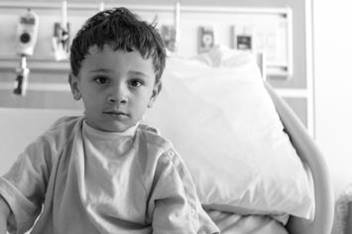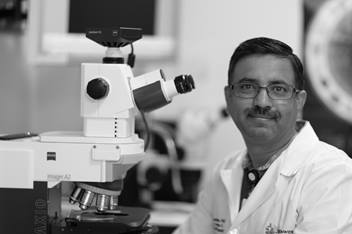Jackson Lab
The Jackson Lab is dedicated to examining how individuals with congenital and acquired heart disease manage their illness and emotional wellbeing across the lifespan. Our goal is to ensure the best outcomes for survivors of heart disease through better understanding factors that promote healthy lifestyle, effective coping and stress management, and active engagement in medical care.
Current Research Projects
CHD-PALS is a clinical trial of a lifestyle intervention promoting physical activity among adolescents and young adults with congenital heart disease. The goal of this research is to establish an intervention for sustaining increased physical activity levels that will reduce complications and enhance quality of life for survivors of congenital heart disease. Participants in this study may work with a lifestyle coach to help meet their physical activity goals. We are interested in learning what factors contribute to physical activity levels and how to tailor lifestyle interventions to meet the needs of adolescent and young adult congenital heart disease survivors.
Adults with congenital heart defects (CHD) often experience neurodevelopmental disorders (NDD), yet they remain underrepresented in research due to eligibility barriers in completing patient-reported outcome (PRO) tools in the Congenital Heart Initiative (CHI) registry. The goal of the CHI is to better understand the long-term outcomes, healthcare needs, and research priorities of adults with CHD. This study aims to further modify the CHI engagement rubric to create an inclusive pathway for individuals with CHD and NDD, addressing a critical gap in research equity.
Past Research Projects
This six-year longitudinal study followed emerging and young adults with congenital heart disease to explore how their understanding of the condition, quality of life, illness perceptions, and health outcomes evolve as they age.
APPROACH-IS II was an international research study aimed at better understanding the outcomes, experiences, and health care needs of adults with congenital heart disease. The study also explored how these patient-reported outcomes varied across 32 different countries. Nationwide Children’s Hospital was one of more than fifty participating sites and medical centers worldwide.
Featured Publications
Get Involved
A research assistant is needed for a collaborative research team that is investigating psychosocial and medical outcomes for those with congenital and acquired cardiac disease. The individual recruited will contribute to ongoing work with children, adolescents, and young adult survivors of congenital heart defects and other cardiac-related illness. The biggest commitment of time and effort will be on an NIH-funded randomized clinical trial evaluating the feasibility of a videoconference-delivered physical activity lifestyle intervention for adolescent survivors of congenital heart disease. Duties will involve direct work with research participants (recruitment, in-person and web-based data collection), data management and dissemination of research results. This position will involve close collaboration with the investigators as well as other research staff at Nationwide Children’s. Opportunities exist for mentorship and professional development for applicants who may be interested in gaining experience that will prepare them to apply for advanced graduate programs.
Responsibilities
- Conduct clinical research activities independently or semi-independently, following protocols approved by the principal investigator and the Institutional Review Board (IRB) governing protection of human research participants. This will involve making recruitment phone calls to potential participants, data collection, and data management. Data collection will involve collaboration with adolescents and families to administer surveys via the internet. Data management will include scoring standardized assessments, medical record reviews, data entry and verification. These duties will involve some evening and/or weekend hours on a flexible schedule.
- Collect and control experimental data and subject information and maintain accurate data collection of all study data. Protection of participant privacy and adherence to policies for management of private and protected health information is required.
- Supervise student research interns.
- Interpret the results of data analyses with input from the principal investigator.
- Assist the principal investigator in the preparation of scientific publications and grant proposals.
- Make recommendations about refinement and/or replacement of study procedures. Implement such refinements or new procedures with input from the principal investigator, only after IRB approval.
- Order supplies needed to conduct research, maintain inventory of equipment and supplies and assure that research equipment is in good working order.
- Work with other clinical research coordinators/research assistants and students using standard research practices. Follow appropriate federal, state and institutional guidelines for clinical research; adhere to good clinical practices.
- Perform miscellaneous related duties.
Knowledge, Skills and Abilities Required
- Bachelor’s degree in relevant field, for example psychology or another behavioral science.
- Ability to function independently, to make decisions and to be a self-starter.
- Strong organizational skills and attention to detail.
- Team player who will work well with supervisors, co-workers and student supervisees.
- Good communication and interpersonal skills.
- Current driver’s license and insurance with access to a reliable car for use in data collection.
- Previous research experience and familiarity with statistical and data management software (e.g., SPSS, Excel, RedCap) is preferred.
If interested, please contact:
Ruri Famelia, PhD
Clinical Research Program Coordinator
Abigail Wexner Research Institute at Nationwide Children’s Hospital
Ruri.Famelia@NationwideChildrens.org
Learn more about Life in Columbus
Preferred # of credit hours: 1-2
Preferred # of Terms Commitment: 2 semesters (available autumn, spring, and summer semesters)
Student participation: Students may take several roles in the research process including, but not limited to: entering and verifying data, abstracting data from patient medical charts and interacting with nurses and physicians.
Special qualifications needed: Students should be majoring in psychology, pre-med, nursing or related field, with a GPA of 3.5 or higher. Good interpersonal skills and completion of a research methods course are necessary. Prior familiarity with a hospital setting (either inpatient or in a hospital clinic) is preferred.If interested, please contact:
Ruri Famelia, PhD
Clinical Research Program Coordinator
Abigail Wexner Research Institute at Nationwide Children’s Hospital
Ruri.Famelia@NationwideChildrens.org
Description of potential experiences in the Jackson Lab:
- In-depth training on behavioral randomized clinical trial methodology and refinement, including developing intervention manuals grounded in health behavior change theory, selecting appropriate comparators, training/supervising interventionists, and trial regulatory considerations
- Exposure to advance analytic techniques for assessing change in behavioral randomized clinical trials
- Serve as an interventionist, as well as other clinical exposure opportunities are available
- Grant writing and scientific review mentorship
- Conference abstract and manuscript opportunities using pre-existing data and/or data collected during fellowship
- Collaborating with medical staff
- Providing mentorship to postbaccalaureate clinical research assistants
- Participate in the Patient-Centered Pediatric Research Program (PC-PReP) postdoctoral training program with other clinical research fellows.



